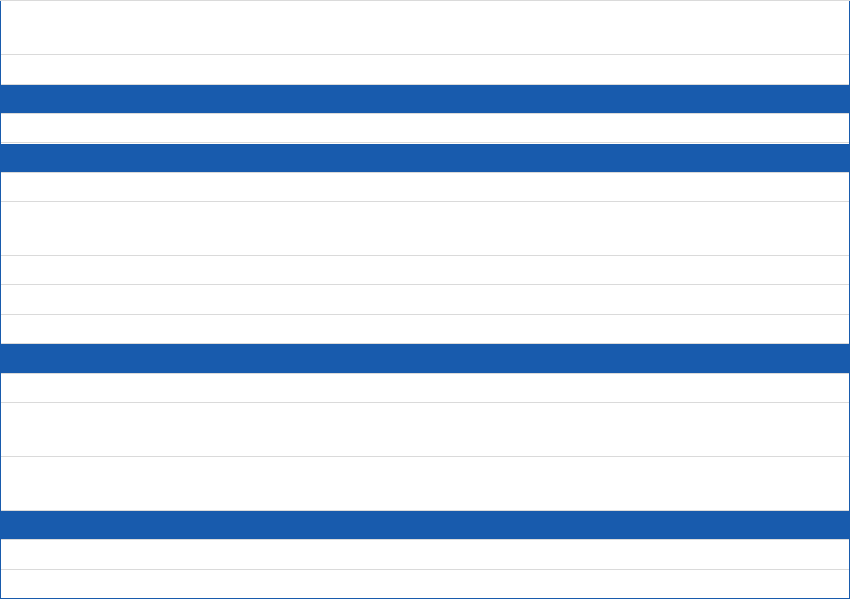
Health and
Food Safety
European
Commission
for good patient information
provision on cross-border
healthcare
1
FREQUENTLY
ASKED QUESTIONS

1
Frequently Asked Questions
for good patient information provision on cross-border healthcare
1
Incoming patients*
Both the Social Security Regulations (EC) 883/2004 and 987/2009* and Directive
2011/24/EU* grant the right to assumption of costs for medical treatment* in any other
EU*/EEA* country. The range of covered healthcare services, the conditions to access medical
treatment* as well as the financial implications differ depending under which scheme the
patient enjoys treatment abroad. As a result, it is of great importance that patients are properly
informed on the different consequences to be treated under either one or the other EU legal
instrument.
I
t is within the task of National Contact Points* (NCPs) to provide both outgoing* and incoming
patients* with clear and accessible information on their rights and entitlements to cross-border
healthcare*. Patients travelling from any other EU*/EEA* Member State * will make use of the
NCP function of the country of treatment* in order to inform themselves on the foreign
healthcare system and healthcare providers, amongst others so they can travel with more
confidence knowing that the treatment they wish to receive will be provided according to
certain quality and safety standards and knowing they will have rights and entitlements in case
something goes wrong.
Fo
llowing template with frequently asked questions (FAQ) can be used by NCPs in their role as
NCP of the country of treatment* to provide information on their NCP website or as a starting
point for personal counselling of incoming patients.
You are welcome to copy and paste part or all of the below wording for use on your NCP website or
in communication to patients.
1
For each word or concept in this FAQ directly followed by an asterisk (*), corresponding definitions
and explanations are provided in the accompanying alphabetical glossary.
Disclaimer
This document was produced under the Health Programme (2014-2020) in the frame of a specific contract with
the Consumers, Health, Agriculture and Food Executive Agency (CHAFEA) acting under the mandate of the European
Commission. The content of this report represents the views of the contractor and is its sole responsibility; it can in no way
be taken to reflect the views of the European Commission and/or CHAFEA or any other body of the European Union. The
European Commission and/or CHAFEA do not guarantee the accuracy of the data included in this report, nor do they accept
responsibility for any use made by third parties thereof.

2
Overview
Patients’ rights to cross-border healthcare
What if I become suddenly ill or get injured during a stay in this country, such as during holiday, a
family visit, business trip or exchange studies?
Where should I apply for my European Health Insurance Card*?
How do I know who I should contact and which healthcare provider or hospital to go to in case of
sudden illness or injury abroad?
Am I entitled to kidney dialysis, oxygen therapy or chemotherapy during my short-term visit? Or am
I entitled to any healthcare relating to my pregnancy while staying aboard?
Am I entitled to travel to this country with the explicit purpose of accessing healthcare?
What about a frontier worker’s* rights and entitlements to healthcare?
What if I reside in another country than the country under whose social security legislation I am
insured?
Access to healthcare
What are my treatment possibilities?
Do I need to present a document or authorisation from my national health service*/health insurance
provider* back home?
Do I need a referral?
Where do I find information on waiting lists?
Can the local healthcare provider or hospital refuse to accept me as a foreign patient?
Prescriptions
Can I present a prescription issued at home to a local pharmacy during my stay abroad?
Can I present a prescription issued abroad to my pharmacy back home?
Healthcare providers and hospitals
How do I find a healthcare provider?
How do I find a hospital which carries out the treatment I wish to receive?
Where do I find more information on a specific healthcare provider or hospital?
How do I know if the hospital or health facility I wish to go to is accessible for patients with
disabilities?
How do I find a healthcare provider?
Quality of treatment
How can I be sure that the treatment will be provided according to certain quality and safety
guidelines?
How can I be sure the healthcare provider I wish to go to is qualified to practice medicine and has a
good reputation?
Reimbursement and costs
Can the local healthcare provider or hospital charge me higher fees because I am a foreign patient?
Where do I find more information on the prices of treatment?
What are my possibilities to have some of the costs assumed by my national health service*/health
insurance provider* back home?
Do I have to pay upfront when I have the prior authorisation* from my national health service*/
health insurance provider* back home?
In case I have to pay upfront, to which institution should I direct my claim for reimbursement?
Patients’ rights

3
What If I disagree with the treatment or medical intervention proposed by the healthcare provider
abroad?
Where do I find information on my patient’s rights in this country?
Follow-up care
What If I need follow-up care after receiving treatment or medical intervention abroad?
Medical records and language
Where do I find information on the language of treatment?
Do I need to arrange interpretation myself when I am unable to understand my treating healthcare
provider due to a language barrier?
What should the healthcare provider document in my medical records?
Am I entitled to access my medical records?
How do I arrange transfer of my medical records back home?
Complaints and malpractice
What if I am not satisfied with the treatment received or what if something goes wrong?
Who should I contact to receive more information on my possibilities to file a complaint and seek
redress?
How can I be ensured that the healthcare provider has professional liability insurance or similar
guarantees in case something goes wrong?
National Contact Points
What are National Contact Points*?
How to contact a National Contact Point*?

4
① Patients’ rights on cross-border healthcare
1.1. Medically necessary treatment during a short-term stay
What if I become suddenly ill or get injured during a stay in this country, such as during holiday,
a family visit, business trip or exchange studies?
Visiting persons from other EU*/EEA* countries or Switzerland* are entitled to all treatment which
become medically necessary* during their stay.
Medically necessary treatment* is treatment due to sudden illness or injury during a short-term visit,
such as holiday, business trip, family visit or exchange studies, that can’t be postponed and that you
must obtain in order to avoid being forced to return home before the end of the planned duration of
your stay.
Under EU legislation, EU*/EEA* or Swiss* citizens are entitled to enjoy assumption of costs for
healthcare provided abroad on the basis of their social security insurance/ entitlements to public
health services back home. The most common route to enjoy assumption of costs is by presenting
your European Health Insurance Card
* to the treating healthcare provider or hospital. With your
European Health Insurance Card* you will be entitled to medically necessary treatment* under the
Social Security Regulations (EC) 883/2004 and 987/2009*. You will be treated as a domestic patient with
public health insurance and will enjoy assumption of costs according to the same payment method
and tariffs applied for domestic patients.
Please note that your European Health Insurance Card* is only usable when you are treated in a
hospital or by a healthcare provider who is contracted/ affiliated to the social security scheme and is
entitled to provide services covered under the social security legislation. The local national health
service*/ health insurance provider* or National Contact Point* of the country of your visit can provide
you with more information on which healthcare providers are registered under the social security
scheme.
If you are treated without a valid European Health Insurance Card* or you can’t use your card, for
example because you are treated in a private hospital, you either pay for the treatment privately or
you may be able to file for retrospective reimbursement with your national health service*/ health
insurance provider* upon return home under Directive 2011/24/EU*. Under Directive 2011/24/EU you
will be entitled to assumption of costs as though the treatment were provider in your home country.
As a result, the payment method and tariffs of your home country* will apply.
For more information on your rights and entitlements to medically necessary treatment* during your
stay, please contact your national health service*/ health insurance provider* or the National Contact
Point* in your home country*. They will present you with all needed information on the European
Health Insurance Card*, such as where to apply for the card, for which treatment to use the card,
assumption of costs, what to do when your card is not accepted, and so on.
Where should I apply for my European Health Insurance Card*?
The European Health Insurance Card* (EHIC*) is a free card, issued by your national health service*/
statutory health insurance provider* as proof that you are covered under the social security scheme
in your home country* and thus entitled to public healthcare there. The EHIC* gives you access to
assumption of costs for medically necessary treatment* during a short-
term stay in another
EU*/EEA* country or Switzerland*, such as a holiday or exchange studies.

5
You can apply for the European Health Insurance Card* with your national health service*/ statutory
health insurance provider*. Please, remember to make sure that your card is valid before travelling
abroad. If needed, make sure that you renew your card in plenty of time.
How do I know who I should contact and which healthcare provider or hospital to go to in case of
sudden illness or injury abroad?
The National Contact Point* of the country of your stay can provide you with more information on
what to do and who to contact in case you get suddenly ill or injured during your stay abroad.
In case of emergency while staying in the EU* or Switzerland, please call 112
. The European
emergency number 112 is available everywhere in the EU* and is free of charge. When you require
urgent medical attention, please call 112 to have direct access to police assistance, ambulance services
or fire and rescue services.
Am I entitled to kidney dialysis, oxygen therapy or chemotherapy during my short-term visit?
Or am I entitled to any healthcare relating to my pregnancy while staying aboard?
Your European Health Insurance Card* also covers the situation where you suffer from chronic illness
(such as diabetes, asthma, cancer or chronic kidney disease) or when you are pregnant, and you know
in advance there is a possibility that you may need medical treatment* during your stay. As long as
the express purpose of your trip was not to access medical treatment*, such as to give birth or to
receive treatment regarding pregnancy or chronic illness, this will be considered as medically
necessary treatment* under the Social Security Regulations (EC) 883/2004 and 987/2009*.
Be aware that for vital care requiring specialised equipment or staff, you should get a prior agreement
from the hospital or health facility where you wish to obtain treatment. This way the foreign
institution can ensure the availability and continuity of your treatment during your stay abroad.
Examples of such treatment are kidney dialysis, oxygen therapy, special asthma treatment and
chemotherapy.
1.2. Planned medical treatment abroad
Am I entitled to travel to this country with the explicit purpose of accessing healthcare?
When you are entitled to healthcare under the social security scheme of an EU*/EEA* country, you
have the right to seek healthcare in any other EU*/EEA* country or Switzerland*, also referred to as
planned treatment* abroad, and to enjoy assumption of costs by your home country*.
You have the right to access healthcare, including:
• medical diagnosis
• medical treatment
• the prescription, dispensation and provision of medicines and medical devices
You are able to enjoy assumption of costs for planned treatment* in another EU*/EEA* country under
two different EU legal instruments: the Social Security Regulations (EC) 883/2004 and 987/2009* and
Directive 2011/24/EU*.
Both routes result in different consequences for patients regarding the legal basis, the scope of
application, competent authorities, authorisation conditions, applicable reimbursement tariffs,
payment procedure and formalities, as well as the level of the patient’s own contribution. Make sure
you are always well-informed about any financial and other implications before travelling abroad.
Under the Social Security Regulations (EC) 883/2004 and 987/2009*:

6
• You always need to obtain prior authorisation* from your national health service*/health
insurance provider* before travelling abroad
• You are entitled to assumption of costs as though you were insured under the social security
system of the country of treatment*
• The treatment concerned must be included in the range of sickness benefits covered under the
social security scheme of the country of treatment* (even in case you would have been entitled
to assumption of costs were the treatment provided in your home country*)
•
You enjoy the same payment method and tariffs as domestic patients with public health
insurance
Under Directive 2011/24/EU*:
• Normally prior authorisation* from your national health service*/health insurance provider* is
not required. However, for certain health services, such as hospital treatment or highly specialised
and expensive treatment, prior authorisation* might be required
• You are entitled to assumption of costs as though the treatment was provided in your home
country*
• The treatment concerned must be included in the range of sickness benefits covered under the
social security scheme of your home country* (you are only entitled to assumption of costs when
your costs would have been assumed were the treatment provided in your home country)
• You will first have to pay for the treatment privately
. Retrospectively, you may file for
reimbursement with your national health service*/ health insurance provider* upon return home.
They will apply the same reimbursement tariff as for treatment provided in your home country*
Before travelling abroad with the purpose of accessing healthcare, please always first consult your
national health service*/ health insurance provider* at home. Besides, the National Contact Point*
located in your home country* will provide you with all necessary information on your rights and
entitlements to treatment abroad under both the Social Security Regulations (EC) 883/2004 and
987/2009* and Directive 2011/24/EU*.
What about a frontier worker’s* rights and entitlements to healthcare?
Under EU legislation, a frontier worker* is defined as an employed or self-employed person who
resides and works in two different EU*/EEA* Member States or Switzerland* and who usually returns
to his or her country of residence on a daily basis or at least once a week. Frontier workers* are entitled
to healthcare both in the country of employment and in the country of residence.
The frontier worker must file for a S1 form* with the national health service*/health insurance
provider* of the country where he or she is subject to social security legislation (the country of
employment). The S1 form* must be presented to the social security authority of the country of
residence. This way the frontier worker and his or her family members will be entitled to healthcare in
both countries, under the respective social security legislation and in each country with the same
rights and entitlements as domestic patients with public health insurance.
For more information on your rights and entitlements as a frontier worker*, please contact your
national health service*/health insurance provider*.
1.3. Healthcare when living abroad
What if I reside in another country than the country under whose social security legislation I am
insured?
Most of the time you will only be entitled to healthcare in the country of your residence, whether or
not on behalf of another country under whose social security legislation you are insured.

7
However, in some cases patients may remain entitled to healthcare in the country of their social
security insurance or in the country of previous work:
(! Family Members of a frontier worker residing in a country listed in Annex III of Regulation 883/2004*
are excluded from the special arrangements set out below)
• (Posted) workers, including frontier workers*, residing in another country than the country of
work activity and social security insurance are entitled to healthcare during a stay in the country
of work at the own expense of that country and according to its own legislation, as though the
person concerned resided in that country.
• Pensioners residing outside the country under whose social security insurance system they are
insured may be entitled to healthcare during a stay back in the country of their social security
insurance at the own expense of that country and according to its own legislation, as though the
person concerned resided in that country (only applicable when the country of social security
insurance has opted for this arrangement and is included in Annex IV Regulation 883/2004*)
• Retired frontier workers stay entitled to treatment in the country where they last pursued their
work activity, in so far as this is a continuation of treatment which already started during activity.
In some cases a retired frontier worker will remain entitled to healthcare in the country of previous
work activity, regardless of continuation of treatment or not, at the own expense of that country
and according to its own legislation, as though the person concerned resided in that country. This
will be the case when s/he has worked for at least two years as a frontier worker in the last five
years preceding the effective date of his/her pension and both the Member State of previous work
activity as the country of social security insurance have opted for this and are listed in Annex V
Regulation 883/2004*. In this case the retired frontier worker must file for a S3 form* with the
national health service*/health insurance provider* of the country where he or she is subject to
social security legislation. The S3 form* must be presented to the social security authority of the
country of previous work activity.
② Access to healthcare
What are my treatment possibilities?
If you seek information on your treatment possibilities, you should first directly contact the healthcare
provider you wish to receive treatment from. He or she will inform you on all your treatment
possibilities.
If you do not have a particular healthcare provider or hospital in mind, contact the local National
Contact Point* in the country where you wish to seek treatment for more information on how to
search for and how to contact a healthcare provider or hospital that may provide the treatment you
wish to receive.
Do I need to present a document or authorisation from my national health service*/health
insurance provider* back home?
When going on holiday…
When you suddenly get ill or injured during your stay abroad, you will have to present a valid European
Health Insurance Card* to the local healthcare provider or hospital. The European Health Insurance
Card* (EHIC*) is a free card, issued by your national health service*/ statutory health insurance
provider* as proof that you are covered under the social security scheme in your home country* and
thus entitled to public healthcare. The EHIC* gives you access to assumption of costs for medically
necessary treatment* during a short-term stay in another EU*/EEA* country or Switzerland*, such as
a holiday, business trip or exchange studies.

8
When travelling abroad with the explicit purpose of receiving treatment there…
When you travel abroad with the explicit purpose of accessing healthcare, prior authorisation* from
your national health service*/ health insurance provider* back home may be required.
Whether you need prior authorisation* before travelling abroad to seek treatment, depends on
whether you exercise your right to cross-border healthcare* under the Social Security Regulations*
or under Directive 2011/24/EU* and on which type of healthcare you wish to receive. As a general rule,
you probably will need prior authorisation* when you plan to receive hospital treatment or in case of
highly specialised and expensive treatment abroad.
If you wish to receive cross-border healthcare* under the Social Security Regulations*
, prior
authorisation* from your national health service*/health insurance provider* is always required - both
for inpatient* and outpatient* treatment. When your request for prior authorisation is granted, your
national health service*/health insurance provider* will issue you with a S2 form*, that you will have
to present to your treating healthcare provider abroad as proof of your social security coverage.
Generally under Directive 2011/24/EU*, prior authorisation* from your national health service*/
health insurance provider* is not required. However, for some treatments the EU legislator has given
the Member States the possibility to install a system of prior authorisation*. In any case, prior
authorisation* may only be required in case of:
• Healthcare involving an overnight hospital stay
• Healthcare involving highly specialised and cost-intensive medical infrastructure or equipment
• Healthcare presenting a risk for the patient’s own safety (patient safety risk*) or that of the
general population (general population safety risk*)
• Healthcare provided by a healthcare provider that, on a case-by-case basis, could give rise to
serious and specific concerns relating to the quality and safety of the care
If you wish to receive more detailed information on which particular treatment r
equires prior
authorisation*, please contact your national health service*/ health insurance provider* or National
Contact Point* at home for more information.
NOTE: when required, never receive treatment abroad without the prior authorisation* of your
national health service*/ health insurance provider*. If you have received treatment abroad without
the required prior authorisation* from your national health service*/ health insurance provider*,
possibility exists that your claims for reimbursement* will be declined. As a result, you may have to
bear all medical costs incurred abroad yourself.
Do I need a referral?
When you wish to receive treatment under the Social Security Regulations (EC) 883/2004 and
987/2009* the requirement of a referral will depend on whether or not a system of referral is in place
in the country of treatment*. When this is indeed the case, referral from your GP* at home or a GP*
in the country of treatment* may be needed in order to be able to access specialised healthcare in the
country concerned.
When you, however, seek treatment abroad under Directive 2011/24/EU* the requirement of a referral
will depend on whether or not a system of referral for accessing specialised treatment is in place in
your home country*. When such referral is not required to access healthcare in your home country* it
will also not be required to obtain a referral from your GP* before accessing specialised treatment
abroad.
Contact your national health service*/ health insurance provider* and National Contact Point* at
home for more information. The National Contact Point of the country where you wish to receive
treatment can provide you with more information on whether or not a system of referral is in place in
that country.

9
Where do I find information on waiting lists?
The healthcare provider or hospital as well as the National Contact Point* in the country where you
wish to seek treatment can provide you with information on how long you will have to wait before
receiving treatment and on any possible waiting lists that need to be respected.
Can the local healthcare provider or hospital refuse to accept me as a foreign patient?
Healthcare providers or hospitals can only restrict the admission of foreign patients where it is justified
by overriding reasons of general interest, such as planning requirements relating to the aim of
ensuring sufficient and permanent access to high-quality treatment for domestic patients within its
territory. Such measure may for example prove necessary when the number of foreign patients
appears to be so high that local hospitals become overwhelmed with too many patients and cannot
cope with the demand, resulting in unsustainable waiting lists for domestic patients.
Any restrictions on the admission of foreign patients must be made publicly available in advance.
Contact the National Contact Point* of the country where you wish to receive treatment for more
information on any possible restrictions to access healthcare abroad.
③ Prescriptions
Can I present a prescription issued by my treating healthcare provider at home to a local
pharmacy during my stay abroad?
A prescription* for medicine or medical devices prescribed in your country is valid in any EU*/EEA*
country.
However, to ensure that your prescription* is recognised and well-understood by the pharmacist
abroad, inform your prescribing healthcare provider on planning to use the prescription abroad. He or
she will prescribe the medication or medical devices according to the minimum information
requirements for cross-border prescriptions* (Implementing Directive 2012/52/EU*) :
• Identification of the patient: surname(s); first name(s); date of birth
• Authentication of the prescription: issue date
• Identification of the prescribing healthcare provider: surname(s); first name(s); professional
qualification; details for direct contact, such as email and telephone or fax; work address,
including the name of the relevant Member State; written or digital signature
• Identification of the prescribed product: common name (active substance), or in exceptional
cases name; pharmaceutical formulation (tablet, solution, etc.); quantity; strength; dosage
regime
Please note that the medicine concerned may not be available or authorised for sale in the country
abroad. If possible always try to buy your prescription medicines in a pharmacy in the country where
the prescription is issued.
Can I present a prescription issued abroad to my pharmacy back home?
A prescription issued in another EU*/EEA* country must be recognised by any pharmacy in your home
country*. This way proper follow-up and continuity of care upon your return home can be ensured.
However, to ensure that the prescription* is recognised and well-understood by your pharmacist back
home, inform your prescribing healthcare provider on planning to use the prescription in your home
country*. He or she will prescribe the medication or medical devices according to the minimum
information requirements for cross-border prescriptions* (Implementing Directive 2012/52/EU*) :

10
• Identification of the patient: surname(s); first name(s); date of birth
• Authentication of the prescription: Issue date
• Identification of the prescribing healthcare provider: surname(s); first name(s); professional
qualification; details for direct contact, such as email and telephone or fax; work address,
including the name of the relevant Member State; written or digital signature
• Identification of the prescribed product: common name (active substance), or in exceptional
cases name; pharmaceutical formulation (tablet, solution, etc.); quantity; strength; dosage
regime
Please note that the medicine concerned may not be available or authorised for sale in your home
country*. If possible always try to buy your prescription medicines in a pharmacy in the country where
the prescription is issued.
④ Healthcare providers and hospitals
How do I find a healthcare provider?
If you wish to obtain information on healthcare providers and on how to contact them, the National
Contact Point* of the country where you wish to receive treatment will be able to provide you with
more information.
How do I find a hospital which carries out the treatment I wish to receive?
If you wish to obtain information on hospitals and on how to contact them, the National Contact
Point* of the country where you wish to receive treatment will be able to provide you with more
information.
Where do I find more information on a specific healthcare provider or hospital?
If you seek information on a specific healthcare provider, you should first directly contact the
healthcare provider you wish to receive treatment from. He or she is obliged to provide you with
following information:
• the healthcare provider’s authorisation and registration status, that is proof of his or her license
to practice medicine
• the healthcare provider’s insurance cover for professional liability
• the healthcare provider’s entitlement to provide health services covered under the social security
scheme
This information can also be provided by the national health services*/ health insurance provider* or
the National Contact Point* of the country where you wish to receive treatment.
How do I know if the hospital or health facility I wish to go to is accessible for patients with
disabilities?
The healthcare provider or hospital as well as the National Contact Point* in the country where you
wish to seek treatment can provide you with information on the accessibility of the hospital for
patients with disabilities.
How do I find a healthcare provider?
Contact the national health service*/ health insurance provider* or National Contact Point* in the
country where you wish to seek treatment for more information on how to search for and how to
contact a healthcare provider or hospital.

11
⑤ Quality of treatment
How can I be sure that the treatment will be provided according to certain quality and safety
guidelines?
As cross-border healthcare* is provided in accordance with the legislation of the country of
treatment*, also the quality and safety standards of this country will apply. For more information on
the quality and safety standards that are in place as well as on which healthcare providers are subject
to these standards, please contact the National Contact Point* of the country of treatment*.
How can I be sure the healthcare provider I wish to go to is qualified to practice medicine and has
a good reputation?
The National Contact Point* of the country of treatment* can provide you with information on a
specific healthcare provider’s right to practice medicine or any possible restrictions to this right.
If you wish information on healthcare providers who provide treatment regarding a specific chronic or
rare disease, a local patient organisation may provide you with more information on a specific
healthcare provider’s reputation. The National Contact Point* of the country of treatment* can
inform you on the different patient organisations located in its country.
⑥ Reimbursement and costs
Can the local healthcare provider or hospital charge me higher fees because I am a foreign
patient?
The healthcare provider or hospital is obliged to charge you the same fees as applicable for domestic
patients.
Where do I find more information on the prices of treatment?
The National Contact Point* of the country where you wish to receive treatment can provide you with
more information on the tariffs for medical care applied in that country. Besides, the foreign
healthcare provider you wish to consult is obliged to provide you with clear information on the prices
of treatment he or she provides.
What are my possibilities to have some of the costs assumed by my national health
service*/health insurance provider* back home?
Under EU legislation, your costs incurred for medical treatment* abroad may be assumed by your
national health service*/ health insurance provider* back home under two different schemes: the
Social Security Regulations (EC) 883/2004 and 987/2009* and Directive 2011/24/EU*.
• Under the Social Security Regulations (EC) 883/2004 and 987/2009* your costs will be
assumed according to the amount envisaged in the rules and legislation of the country of
treatment*.
• Under Directive 2011/24/EU your costs will be assumed according to the amount envisaged
in the rules and legislation of your home country.
Please note that t
he range of covered healthcare services, the conditions to access medical
treatment* as well as the financial implications will differ according to which scheme you will enjoy
treatment abroad.

12
As social security remains within the own competence of Member States, you may also be entitled to
assumption of costs of cross-border healthcare* derived from purely national legislation, as for
example under national healthcare projects for border regions.
Inform yourself on all your different options with regard to accessing healthcare abroad with your
national health service*/ statutory health insurance provider*.
Do I have to pay upfront when I have the prior authorisation* from my national health service*/
health insurance provider* back home?
Whether the costs of the treatment will be directly assumed by your national health service*/ health
insurance provider* (third-party payment*) or whether you will have to pay all costs upfront yourself
and ask for reimbursement afterwards, depends on whether you have received treatment abroad with
a S2 form* (Social Security Regulations (EC) 883/2004 and 987/2009) or under Directive 2011/24/EU.
• Under the Social Security Regulations* the payment method will depend on the system in place
in the country of treatment*. As you are treated as though you were insured under the social
security system of the country of treatment*, you will enjoy the same rights and entitlements
regarding the method of payment as a domestic patient with public health insurance. Two
possibilities may occur:
The treatment you need is free of charge (which may often be the case), sometimes
combined with a limited amount of co-payment, in which case the costs will be directly
settled between the healthcare provider and the social security authority of the country
of treatment. The foreign authority will then automatically liaise with your own national
health service*/ health insurance provider* at home to obtain refund, without you
having to do anything more.
(! Be aware that you may recover all or part of your costs of co-
payment* under your entitlements to the so-called Vanbraekel supplement*. More specifically, this
will be the case when the tariff of treatment abroad
is lower than the tariff applied under the social
security legislation of your home country*. Inform yourself on your rights and entitlements to
additional compensation under the Vanbraekel supplement* with your national health service*/
health insurance provider* back home)
You have to pay all costs of the treatment yourself and have to file for reimbursement
afterwards, either with the local social security authority while still being abroad, or with
your own national health service*/ statutory health insurance provider* upon return
home. Either way the reimbursement tariff of the country of treatment* will apply.
• Under Directive 2011/24/EU you will always have to initially bear all costs of the treatment
yourself. You pay all invoices directly to the healthcare provider/hospital abroad. Upon your
return home, you may file for reimbursement with your national health service*/ statutory health
insurance provider*. The latter will apply the same tariff of reimbursement as for domestic
treatment provided in your home country*.
In case I have to pay upfront, to which institution should I direct my claim for reimbursement?
When you enjoy treatment abroad under the Social Security Regulations (EC) 883/2004 and 987/2009*
and you have to make an upfront payment*, you are free to choose to either file for reimbursement
with the local social security authority while still being abroad or with your own national health
service*/ statutory health insurance provider* upon return home. Either way the reimbursement tariff
of the country of treatment* will apply.
Under Directive 2011/24/EU you always have to make an upfront payment*. You are entitled to file
for reimbursement with your own national health service*/ health insurance provider* upon your
return home. In this case the reimbursement tariff of your home country will apply.

13
⑦ Patients’ rights
What If I disagree with the treatment or medical intervention proposed by the healthcare
provider abroad?
In case you disagree with the proposed treatment, you are by no means obliged to go through with it.
The healthcare provider is obliged to obtain your informed consent before starting any treatment or
medical intervention. You are entitled to change your mind and stop treatment at any time.
Nevertheless, it remains within the competence of the healthcare provider to decide which treatment
is the most suitable based on medical grounds. You are not entitled to enforce any possible treatment
you may desire. The healthcare provider must inform you on the treatment he or she proposes as well
as on possible treatment alternatives.
Whether you agree with the treatment proposed or choose alternative treatment, your consent is
needed for any medical act and for every step of the medical procedure. Ultimately, you choose
yourself to agree or continue with treatment or medical intervention.
For more information on your right to informed consent, please contact the National Contact Point*
of the country where you wish to receive treatment.
Where do I find information on my patient’s rights in this country?
As cross-border healthcare* is provided in accordance with the legislation of the country of
treatment*, the patients’ rights contained in national legislation of that country will apply. You will
enjoy the same rights and entitlements regarding accessing healthcare and receiving treatment as
domestic patients, such as your rights regarding informed consent, accessing medical records,
privacy, complaints and redress,…
The National Contact Point* of the country of treatment* can provide you with more information on
the framework of patients’ rights that is in place in that country.
⑧ Follow-up care
What If I need follow-up care after receiving treatment or medical intervention abroad?
When you have received treatment abroad and medical follow-up proves to be necessary, you are
entitled to suitable follow-up care* in your home country* as if the treatment itself had taken place
at home instead of abroad. Your home country* is obliged to provide you with follow-up care of the
same quality regardless of where the treatment took place.
⑨ Medical records and language
Where do I find information on the language of treatment?
The National Contact Point* in the country where you wish to receive treatment will be able to provide
you with more information on the languages of treatment in that country.
Do I need to arrange interpretation myself when I am unable to understand my treating
healthcare provider due to a language barrier?

14
When treatment is provided in another language, make sure that you inform yourself on whether or
not you will need to arrange for interpretation yourself during your contact with the treating
healthcare provider(s) and other medical staff abroad.
What should the healthcare provider document in my medical records?
In order to ensure continuity of care upon your return home, you are entitled to a written or electronic
medical record of your treatment or medical intervention. The treating healthcare provider abroad
should document data, assessments and information of any kind on your medical situation and clinical
development throughout the process of care, such as information on diagnosis, examination results,
treatment outcome, a list of administered medicines, post-operative results,…
Am I entitled to access my medical records?
Directive 2011/24/EU provides every patient in cross-border healthcare* the right to at least one copy
of their medical record. More specifically, you have the right to a copy of your medical records*
containing such information as diagnosis, examination results, assessments by treating healthcare
providers and information on any treatment or interventions provided.
How do I arrange transfer of my medical records back home?
Transfer of your medical records to your treating healthcare provider at home may be important to
ensure continuity of care and suitable follow-up treatment.
Your healthcare provider must provide you with at least one copy of your medical records in order to
enable you to arrange transfer of your records yourself. The healthcare provider may also arrange to
transfer him-or herself your medical records directly to your treating healthcare provider at home.
⑩ Complaints and malpractice
What if I am not satisfied with the treatment received or what if something goes wrong?
If you are not satisfied with the treatment or medical intervention you have received, you are entitled
to file a complaint and seek redress. In any case, the legislation of the country where the treatment is
provided will apply. As a result you will have to file a complaint and seek redress under the domestic
administrative and court procedures. You will be subject to the procedural rules, time limits, rules on
burden of proof and damages scheme as applied in the country where you wish to receive treatment.
For more information on your options to file a complaint and seek redress in case something goes
wrong, please contact the local National Contact Point*.
Who should I contact to receive more information on my possibilities to file a complaint and
seek redress?
Contact the National Contact Point* in the country of treatment* for more information on your
options to file a complaint, settle disputes and seek redress in case something goes wrong. Inform
yourself on the different procedures in place, which institutions to address, the steps you need to
undertake, the applicable time limits as well as anticipated procedural costs.
How can I be ensured that the healthcare provider has professional liability insurance or similar
guarantees in case something goes wrong?
Directive 2011/24/EU* obliges each EU*/EEA* country to ensure that a system of professional liability
insurance or a guarantee or similar arrangement is in place for treatment provided on its territory.
The healthcare provider is obliged to provide you with information on his or her insurance cover for
professional liability.

15
⑪ National Contact Points
What are National Contact Points*?
In line with Directive 2011/24/EU*, each Member State has installed one or more National Contact
Point* for Cross-border Healthcare* (NCPs*). Member State are free to decide how to organise these
NCPs*. As a result great differences exist. Some NCPs* are aligned with the national health insurance
provider or the ministry of health, whereas others are independent bodies.
The main task of NCPs* is to provide patients with clear and accessible information on all aspects of
accessing medical treatment* abroad. NCPs will provide patients with information on different topics
depending on whether the patient is a domestic patient wanting to access healthcare abroad
(outgoing patient*) or a foreign patient wanting to access healthcare in the country concerned
(incoming patient*).
How to contact a National Contact Point*?
All NCPs* have a designated website where the essential information on medical treatment* abroad
(cross-border healthcare*) is provided. Besides, patients can consult NCPs*
directly for more
information or personal inquiries about accessing healthcare abroad, such as through telephone,
email or an online contact form. Many NCPs* also serve patients in person at the NCP* office. The
contact details of the NCP* are provided on each NCP* website as well as on the website of the
European Commission.

